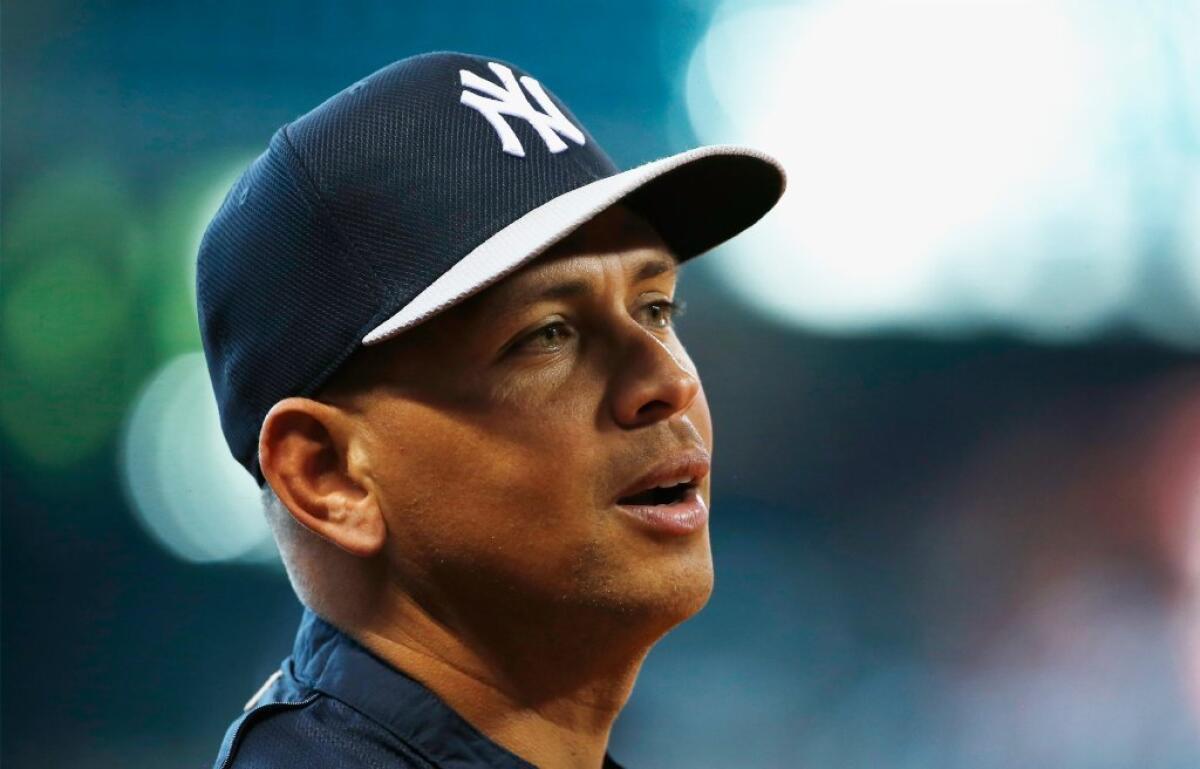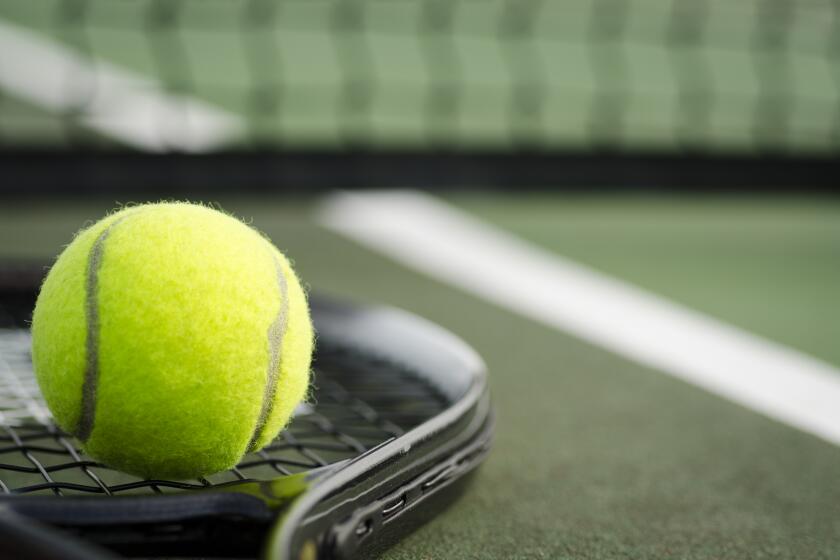Baseball’s steroids hysteria: In defense of A-Rod

- Share via
People who follow the endless saga of doping in sports know there’s one hard-and-fast rule: Any time a big name gets whacked, the quality of public debate on the issue plummets.
That’s certainly true of the case of Yankees third-baseman Alex Rodriguez, one of the highest-profile pro athletes ever accused of doping.
Given that the playoffs between the Boston Red Sox and the Detroit Tigers feature two players tainted by scandal--Sunday’s hero David Ortiz of the Red Sox, who copped in 2009 to testing positive for steroid use years earlier, and Tigers shortstop Jhonny Peralta, who returned to the lineup in September after a 50-game suspension--it’s timely to look again at doping in baseball, and what the league, the fans, and sportswriters get wrong about it.
The A-Rod case puts it all in perspective. As I’ve reported in the past, the real problem with sports doping hysteria is that the prosecutorial system in which the authorities make up the rules as they go along, then serve as their own judges and juries, is grotesquely tilted against the athletes.
A-Rod’s case is very much alive. He has appealed his unique 211-game suspension to an arbitrator, who heard oral arguments two weeks ago and won’t rule for weeks or months. On Oct. 3, he sued Major League Baseball and Commissioner Bud Selig, accusing them of a raft of violations of the rules for discipline negotiated by the league and the players union. He also alleged that they engaged in a campaign of orchestrated leaks to the media to pressure him to capitulate--and the evidence suggest’s he’s got a point.
A-Rod quite properly points the finger at an especially noxious aspect of doping cases, the “non-analytical positive.” This is a tool to whack athletes who haven’t actually flunked a drug test. It allows doping cops to bring in such evidence as testimony from teammates and trainers.
The problem is that typically anything goes with this evidence. Hearsay is okay. Uncorroborated claims are okay. Documents of questionable veracity are okay. It goes without saying that much of this evidence would be ruled inadmissible if these cases ever came before a legitimate court of law. There’s a good reason why anti-doping organizations like the World Anti-Doping Agency and the U.S. Anti-Doping Agency do everything they can to keep their cases out of court: almost every time such evidence has been weighed by a real judge, it’s been tossed.
As for the 211-game suspension, A-Rod argues that it’s not within baseball’s rules. He’s right. Baseball argues that the longer suspension is warranted because A-Rod is guilty of multiple offenses as well as efforts to “impede” its investigation. But Tulane law professor Gabe Feldman reports that the negotiated rules don’t allow discipline for a second or later offense before the first offense has been adjudicated. Scott Lemieux at Deadspin.com observes that pretty much every athlete caught in baseball’s snare probably used drugs more than once--what’s the excuse for treating Rodriguez differently from all the other players who received the first-offense 50-game suspension? “Impeding” the investigation? The rules don’t provide for punishment for that.
In a larger sense, A-Rod’s case underscores the larger issues with anti-doping hysteria. No less an authority than Bill James has spoken out on the topic; his conclusion is that it’s narrow-minded and short-sighted. What’s the argument, he asks, for keeping superstars like Mark McGwire and Sammy Sosa out of the Hall of Fame for behavior that didn’t violate baseball’s rules at the time, or that weren’t systematically enforced?
James suspects the campaign to bar such athletes from the Hall will eventually fail of its own weight. “History is forgiving,” he writes. “Statistics endure.” (He acknowledges that the process of forgiveness may take decades.) Anyway, he adds, efforts by athletes to gain a tiny edge against their rivals and against their own aging are as old and as eternal as sports itself
The reality is that society’s approach to these efforts is hopelessly confused. Has anyone provided a consistent rationale for stigmatizing the use of steroids or human growth hormone, when physical mutilation like Lasik or Tommy John surgery is accepted, even encouraged? None of these practices will turn an average slob into a star; keeping at the top of a sport requires a superhuman work ethic, drugs or not.
Until we get our arms around how to distinguish any of these performance-enhancing methods from each another, the quest for the edge will continue. Athletes will provide the fans with the thrills they pay for, and fans and sportswriters with grounds for resentment at fabulously-wealthy superstars found guilty of some nebulous “moral” failing. And doping cops who can’t make their cases any other way will stretch their own rules, becoming dirtier than the athletes they’re pursuing.
Is Alex Rodriguez guilty of doping, beyond the steroid use in 2001-2003 he’s admitted to? I don’t know, and neither do you. If Bud Selig thinks he is, let’s see him prove it in a court of law. If A-Rod’s challenge forces Selig to do so--or at least forces Selig to comply with the rules he himself negotiated--he will have performed a great service for sport, and for the rest of us.
More to Read
Go beyond the scoreboard
Get the latest on L.A.'s teams in the daily Sports Report newsletter.
You may occasionally receive promotional content from the Los Angeles Times.











